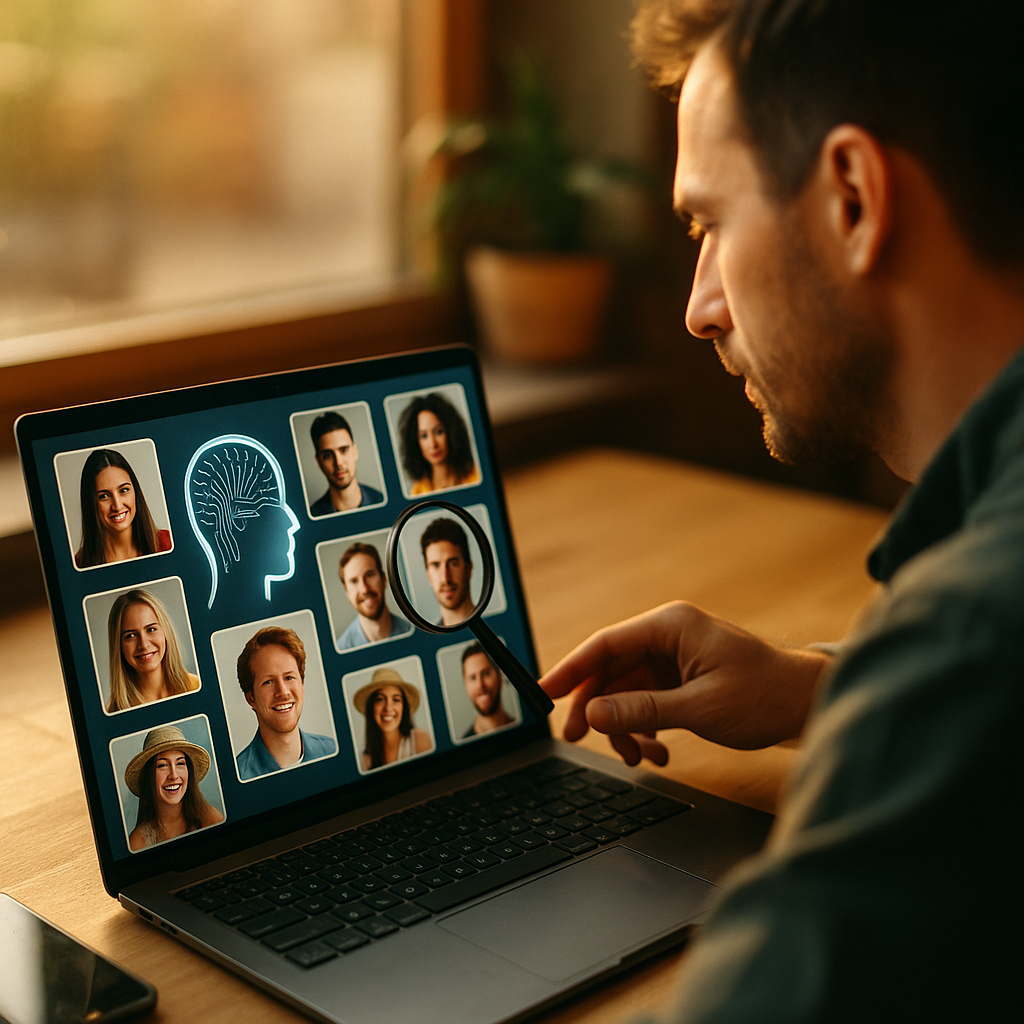AI ethics in automated influencer selection is at the forefront of every ethical marketer’s mind in 2025. As AI transforms how brands select digital partners, marketers must ensure they make fair and responsible choices. Let’s explore what ethical AI-powered influencer vetting means, and how you can use it to build trust and authenticity in campaigns.
The Rise of Automated Influencer Selection and Responsible Decision-Making
Brands now harness AI to quickly sift through millions of potential influencers, drastically reducing manual effort and bias. Sophisticated algorithms evaluate engagement rates, audience demographics, and brand alignment within seconds. Yet, as automated influencer selection becomes standard, a crucial responsibility emerges: ensuring the AI’s decisions align with ethical standards.
Unlike traditional selection, AI-driven processes can unintentionally reinforce biases present in training data or make decisions lacking in human empathy. For example, if an AI is trained only on past successful campaigns, it may inadvertently favor a narrow demographic of influencers, ignoring deserving voices. Responsible decision-making in automated selection means setting clear guidelines to safeguard fairness and inclusivity throughout the process.
Transparency and Accountability in AI-Driven Influencer Marketing
Transparency is critical for trust in AI-driven influencer marketing. Marketers and brands must understand—and be able to explain—how AI tools weigh factors like audience reach, content style, and authenticity. This transparency helps dispel the “black box” perception and reassures both influencers and consumers.
Accountability goes hand in hand. Teams should document:
- How AI selection criteria are established and adjusted
- Methods to identify and correct algorithmic bias
- Stakeholder roles in reviewing automated selections
With clear records, brands have a defensible process in case an influencer selection goes awry or attracts public scrutiny. Proactively communicating AI’s role in campaign decisions, as top marketers now do, will become expected in 2025’s influencer collaborations.
Combatting Bias: Inclusive Influencer Discovery With AI
Baked-in human biases can easily transfer into AI models through skewed training data or poorly defined objectives. Ensuring inclusive influencer discovery requires intentional strategy. Brands are addressing this by:
- Using diverse, up-to-date datasets to train selection algorithms
- Monitoring model outputs regularly to detect demographic skews
- Explicitly programming inclusivity goals—such as flagging and boosting underrepresented creators—into selection logic
- Involving diverse human review teams in AI oversight
These steps improve the visibility of creators from marginalized groups, enhance campaign relatability, and help brands genuinely embody inclusive values.
User Privacy and Ethical Data Use in Influencer Selection
Robust influencer selection relies on a wealth of personal data—from follower demographics to behavioral analytics. However, ethical data use remains paramount. Consumers and influencers alike expect transparency, consent, and respect for privacy.
Leading brands and AI vendors observe the following ethical data mandates:
- Consent-first data usage: Only analyzing social and audience metrics when influencers have agreed to such use.
- Data anonymization: Masking sensitive personal information wherever possible during the selection process.
- Secure storage: Adhering to – or exceeding – privacy regulations for all influencer and consumer data.
Today, as stricter digital privacy regulations are enacted worldwide, ethical AI-powered influencer selection is rooted in proactively respecting user rights and upholding data protection standards.
Building Trust Through Human-AI Collaboration in Campaigns
Despite the power of AI, a human touch is still essential in automated influencer selection. The most effective marketers in 2025 use AI as an intelligent assistant, not a lone decision-maker. Humans provide contextual judgement, brand sensitivity, and ethical reasoning that AI cannot match.
Practical models include:
- AI generates a shortlist of influencer candidates, which a diverse human panel reviews for brand fit and potential ethical concerns.
- Humans program feedback loops—when campaigns underperform or misalign, learnings train the AI for improved future results.
- Collaborative teams address influencer feedback, ensuring fair treatment throughout partnerships.
This ongoing partnership between AI and humans ensures that influencer campaigns are scalable, diverse, and genuinely trusted by both audiences and collaborators.
Future-Proof Your Strategy: Evolving Standards in AI-Driven Influencer Selection
As regulatory standards and public expectations evolve, brands must stay proactive. Regular ethical audits, third-party reviews, and direct input from influencers about the selection process all provide critical feedback. Innovators are:
- Adopting transparent “AI selection explainers” within RFPs and campaign briefs
- Publicly releasing annual reports summarizing AI-driven influencer vetting practices and inclusivity outcomes
- Engaging with influencer talent through town halls or surveys to fine-tune selection processes
With these forward-thinking approaches, automated influencer selection will continue to grow in both sophistication and ethical strength, supporting sustainable, cross-cultural marketing success.
Conclusion: Key Takeaways on AI Ethics in Influencer Marketing
Ethical AI in automated influencer selection means balancing efficiency with inclusivity, privacy, and transparency. Marketers who prioritize these principles—empowered by both cutting-edge technology and strong human values—protect brand reputation and build trust. In 2025, responsible, explainable AI-driven choices will set leaders apart in the ever-evolving influencer marketing landscape.
FAQs About AI Ethics in Automated Influencer Selection
-
What are the main ethical concerns with automated influencer selection?
The primary concerns include algorithmic bias, lack of transparency, privacy violations, and over-reliance on automated judgement without human oversight.
-
How can AI-driven influencer selection be made more fair and inclusive?
Ensuring algorithms are trained on diverse datasets, setting explicit inclusivity goals, and involving human review teams all contribute to fairer selection outcomes.
-
How do brands protect influencer and audience privacy during automated vetting?
By only using data with consent, anonymizing personal information, and following strict data-privacy regulations throughout the selection process.
-
Should AI or humans make the final influencer selection decision?
Ideally, AI assists with shortlisting, but humans should always have the final say, applying ethical and contextual judgement before campaign launch.
-
What steps can brands take to improve transparency in AI-driven influencer selection?
Brands should clearly document selection processes, explain AI criteria, seek stakeholder feedback, and communicate AI’s role in all influencer partnerships.
